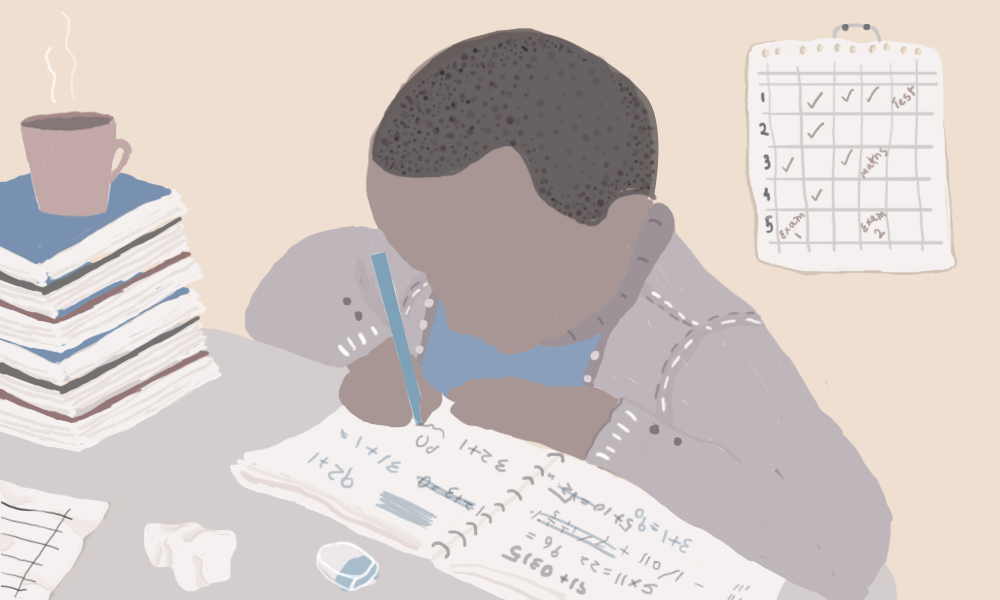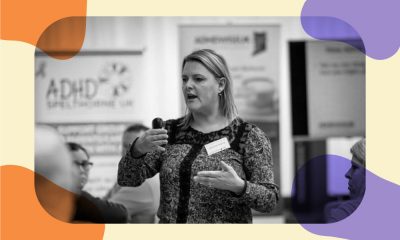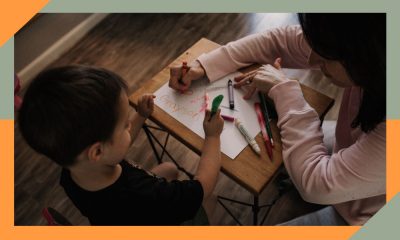Inclusion
An Equally Enriching Experience: A Look at Higher Education for Students with Special Needs
‘Being away from overwhelming stimuli made it easier to learn.’
Jory Fleming, a Rhodes scholar on the autism spectrum, has been in the news over the past few years for challenging stereotypes associated with students with special needs and disabilities who pursue higher education. The 25-year-old finished his master’s degree in geography and marine science at Oxford University last year. It took resilience, his mother’s decision to homeschool him, the introduction of two friendly companions in his life, a bird, Federer, and a service dog, Daisy, to help him reach his destination.
Jory, who grew up in South Carolina in the United States, has had his share of ups and downs. He struggled with meltdowns in school and often needed to be calmed down which meant missing out on new lessons in class. “It was so stressful for him to be around other children. In that busy environment, he was not able to learn and progress as much as I thought he could,” Jory’s mother, Kelly Fleming, told Re:Set. This strengthened her resolve to teach him herself and not pursue her own medical residency which she’d then just qualified for — a difficult decision.
“Once Jory was at home in an environment he could tolerate being in, he was able to reach his full potential.”
“Once Jory was at home and in an environment he could tolerate being in, he was able to reach his full potential. It seems contrary to the common advice of trying to get kids with autism to socialize, but he didn’t want to be in that world yet, so I took him out of it,” Kelly said.
According to Jory, homeschooling was the perfect fit for him because of the learning environment his mother created for him. “Being away from overwhelming stimuli made it easier to learn. When I was homeschooled, I learned to explore my interests, research a subject and learn with increasing levels of independence as I grew older,” Jory told Re:Set.


Jory’s service dog, Daisy has been by his side since his undergraduate years. Photo courtesy: Jory Fleming
While students with special needs may require additional assistance and support from their university, they can pursue their further studies in many institutions without worrying about the logistics. Support services are available for students with special needs that focus on inclusivity and help them adapt to a college environment by personalizing the experience for them.
There are countless options such as regular programs in popular universities like Cambridge and the University of Arizona, alongside many vocational training options that prepare students with special needs for employment. The key is to choose what works best for your child, keeping in mind their individual needs and future goals. “For me, the college experience was not necessarily about overcoming challenges, but working with others to craft a wonderful journey. Accommodations will not necessarily make your experience identical to everyone else’s, but they helped make my experience equally enriching,” Jory explained, adding that the disability office at the University of South Carolina (USC) was extremely helpful during his undergraduate years.
“However, part of what made USC accessible for me was not just the accommodations, but the people who went out of their way to help me,” he said. “This was not only the disability office, but also my professors and staff in [various] departments who wanted to help me succeed.”
Forget owls, ? is clearly the best magical companion pic.twitter.com/VqpxTjrhWa
— Daisy (@Where_Is_Daisy) April 15, 2019
Certain universities such as the University of Iowa offer specialized initiatives like the Reach program which focuses on helping students with special needs in several ways including providing assistance with academic work, funding options, adjusting to life at the university, cultivating independent living skills and internships among others. According to 2018 data from Cambridge University, around 14% of the total number of students said they have a disability. The university has the Disability Resource Centre (DRC) in place that offers students with special needs provisions such as tutors, accessibility aids, extra time to finish tests and more.
A research study in 2017 in the International Journal of Educational Research revealed that students with special needs were far more likely to struggle with career goals and objectives during their teens compared to their neurotypical classmates. It emphasized the value associated with helping a child with special needs figure out their professional interests and using appropriate methods to let them hone their skills and identify their strengths.
In the UAE, the government strongly advocates education for people with special needs. The National Institute for Vocational Education, which is a part of Dubai’s Knowledge and Human Development Authority (KHDA), encourages students with special needs to apply for vocational training programs and promotes an inclusive learning environment. Programs on offer include travel and tourism management, customer service, health and safety and business management among others. These courses serve as a stepping stone to lucrative careers for students with special needs and can also help them prepare for higher education. At Zayed University, there’s an accessibility department that caters to students with special needs and addresses their concerns. Students with special needs can also approach counselors on campus for guidance and additional resources.
Also read: The Device Gives Her a Voice, but What Happens When Assistive Technology Is Seen as Intrusive?
At Higher Colleges of Technology (HCT) in the UAE, students with special needs are encouraged to enrol and are provided with a variety of support services including note takers, digital tools such as tape recorders and extra support during exams.
While zeroing down on a university, it’s essential to ask questions about assistance and options available for students with special needs like tutor support, individualized programs, counseling services and technological aids like speech recognition software, among others.
Visiting the university can also help ascertain whether it’s the right fit for a student in terms of accessibility like wheelchair ramps, elevators and navigable spaces, options in terms of academia, the general college environment and its faculty. Jory recommends connecting with a current or former student of determination at the university, a welfare officer and with someone from the department for students with special needs. “Information online can be either overwhelming or not enough, so speaking with someone can help you envision whether that space is right for you,” he told Re:Set.
“Information online can be either overwhelming or not enough.”
Certain institutions will be able to make special arrangements for a student if needed. At USC, Jory had a service dog named Daisy, a yellow Labrador trained to assist him with tasks such as focusing on Jory’s pressure points to help him stay calm in a crowded environment. Daisy, who was trained through Palmetto Animal Assisted Life Services (PAALS), allowed him to be fairly independent and remain safe on campus. She was taught to be alert to Jory’s needs and ensure that he was never stuck in a dangerous situation by himself. Having Daisy by his side has helped Jory to a great extent and she joined him at Oxford too and she has stayed with Jory even after the program. “I hold her leash every day, and it connects me to a source of strength and wonder. Through Daisy, I have become more independent, experienced new things and met new people that I would not have otherwise,” he reflected.
Participating in programs such as pre-vocational training can help parents, teachers and mentors help identify what a child with special needs requires to make learning a fulfilling process. While it may sometimes be challenging for them to tread the path of university education on account of limited support options, access to higher education and university programs is slowly improving. Jory is working on a book about his educational experiences. “Education is a wonderful journey, and it can and should be open to people with disabilities,” he said. “I think it’s important that the stories of people with disabilities are shared, because these are the stories of friends, neighbours, and strangers you pass on the street every day.”

























